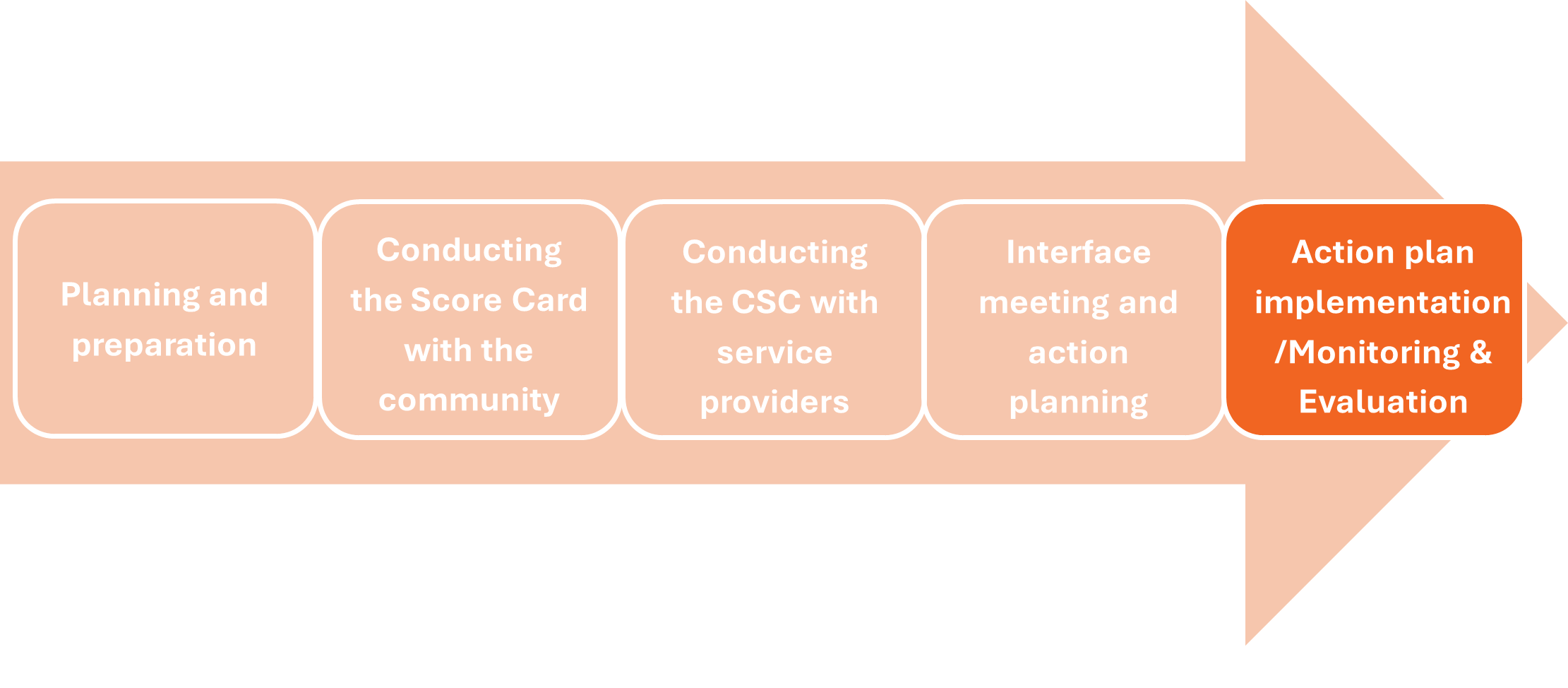
It is important to recognise that the Score Card process does not stop immediately after generating a first round of scores and joint action plan. Follow-up steps are required to jointly ensure implementation of plans and collectively monitor the outcomes. Repeated cycles of the Score Card are needed to institutionalise the practice – the information collected needs to be used on a sustained basis, i.e., to be fed back into the service providers current decision-making processes as well as its M&E system. The Score Card tool generates issues which can be used in advocacy efforts to raise awareness of the problems and push for solutions. These advocacy efforts can also help integrate the solutions into local policies and systems for the sustainability of results.
Some of the key follow-up activities may include, but are not limited to, the following:
• Compile a report on the Score Card process including the joint action plan. Most of the information is already recorded in the note books.
• Use the outcomes and action plan to inform and influence any current plans concerning delivery of the concerned service (e.g., planning processes for the district implementation plan, as well as budgeting processes to take into consideration the needs of the people and the staff).
• Monitor the action plan implementation. It is the responsibility of the service providers and community to implement the plan – they have to own it.
• Plan a repeat Score Card cycle ahead of time and inform both service providers and communities. The repeat cycle will provide an opportunity to assess if there has been any improvement from implementing the joint action plan. The repeat cycle involves the same process with the same communities and service providers. Ask participants to check if the joint action plan has been implemented and if there are improvements in the service delivery process. Repeat Score Card processes are best done at 6 month or one year intervals similar to the duration of the joint action plans.